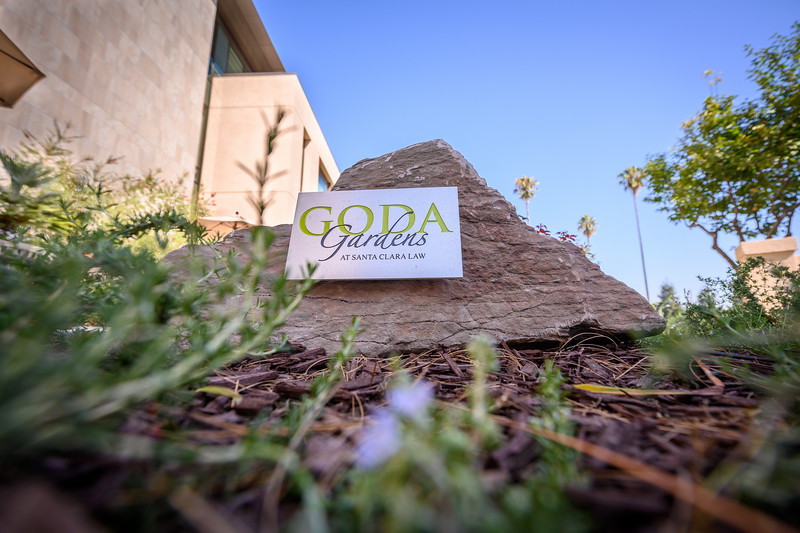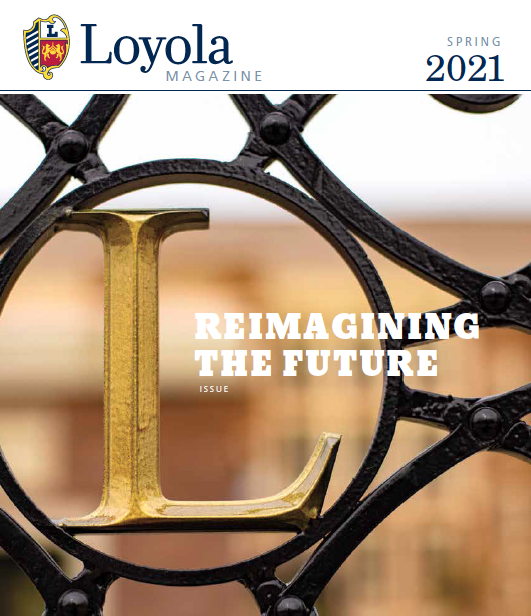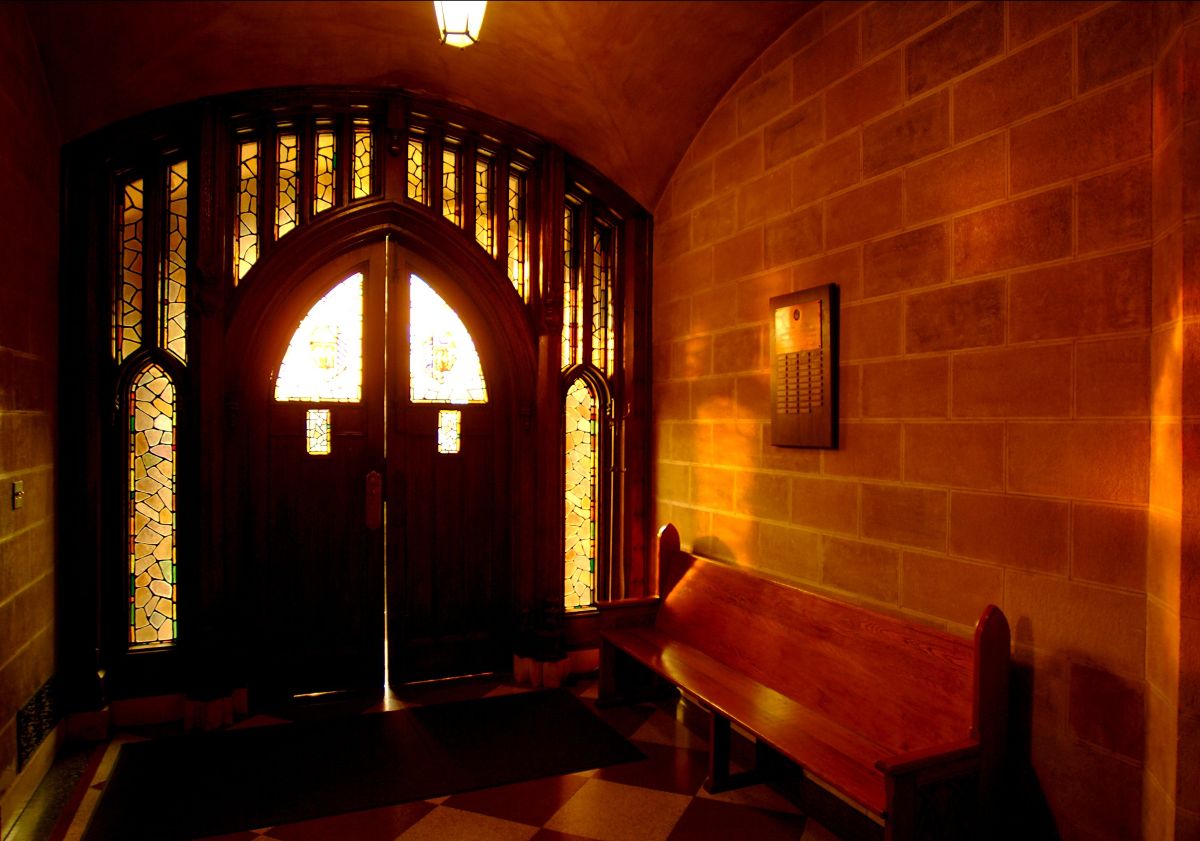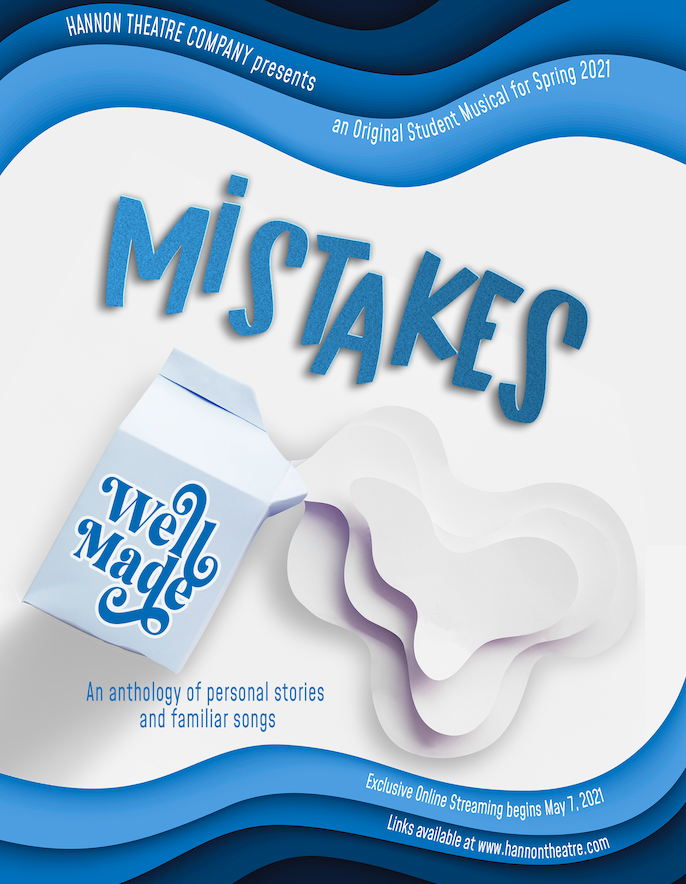Rev. Paul Goda, SJ ’48 Celebrates Golden Jubilee at Santa Clara
Rev. Paul J. Goda, SJ ’48 has much to celebrate. He’s been an active part of the Santa Clara Law Community for 50 years, which includes 40 years of teaching law (1969-2009). To mark his Golden Jubilee, the gardens at the university’s new law school building were recently dedicated the Goda Gardens.
Now 88 years old, Fr. Goda spoke to us about his Jesuit journey and his unforgettable time spent at Loyola High School and Santa Clara University.
First off, congratulations on your Golden Jubilee and on your 40 years teaching Law at Santa Clara University! As you reflect back on your career, what is the one thing you enjoy most about teaching law, and what are some of the things that stand out to you the most?
The thing I enjoy the most is being with bright young people. I am so fortunate to be here; it’s a gorgeous campus and a very good school. Those are two simple positives. But any full answer is also extremely complex because I started teaching in 1969, during a course of rapid change. Santa Clara University and other Jesuit universities and high schools have gone from being very good to being elite schools. However, in the process, they have become extremely expensive (not something unique to Jesuit schools). That put us into categories that we don’t want to go because we’re trapped by budget and the bottom line. Some good things, though, like the strong Catholic culture, are disappearing.
How do you weave a Jesuit perspective into law, and do you believe it’s important to approach law with a Jesuit perspective?
That can be a complicated answer on several levels. On the deepest level, the answer depends on, what does it mean to be a Jesuit? So often I think people get the word Jesuit confused with just being liberal. Most deeply, to be Jesuit is to be a deeply committed Catholic Christian with education woven into it. I was not a law school teacher primarily as a Jesuit; rather, I was focused on teaching the legal system. I might bring in some of my religious views, not to impose them on anyone, but to give students some background. When people think about Jesuit, they often think about being a Man for and with Others and social justice. Those are important, but anyone who’s anyone should be a person for others and be concerned with social justice. Those characteristics are not limited to being a Jesuit.
How did your time at Loyola High shape you, or influence your pathway to becoming a Jesuit and law professor?
Loyola shaped me intellectually. It was a superb education. The Latin helped, it gave me insight into language. The training of the mind was very good. I was a nerd; I thought learning was fun.
What does it mean to you to have this special place on campus, dedicated in your honor, for students, faculty, alumni and visitors to sit and reflect in peace?
I was touched. I am touched.

What is your hope for this generation of lawyers, especially those who graduate from a Jesuit institution?
That they have honesty, integrity and an avoidance of a focus on wealth. That’s not because wealth is bad of itself. But, when I was a kid growing up, I delivered groceries for my father from his markets, and I would go into the back door of some very wealthy homes. I was invisible there, and I saw jealousy, violence and greed from some powerful people with wealth. There’s a quote from Lord Acton that “all power corrupts, but absolute power corrupts absolutely.”
And last, do you have any anecdotes or fun memories about your time at Loyola High School that you’d like to share?
My deepest memory is of our Principal, Fr. Karl Von der Ahe. I was just scared of him when I was at Loyola High but I got to know him when he was the Chaplain at Loyola University. Fr. Von der Ahe helped me in becoming a priest.
In his Germanic way, he told me that I should make up a list—reasons why it was better to become a priest and reasons why it’s better not to, including to get married, to become a lawyer, etc., and then assign each reason points. Every time I did this, it came out against me becoming a priest. I kept being bothered by our Lord. Finally, I said, what the heck, I might as well try this and see how it goes. Fr. Von der Ahe had forced me to look at myself before God. The Lord works in mysterious ways, through those whom we meet in life!





